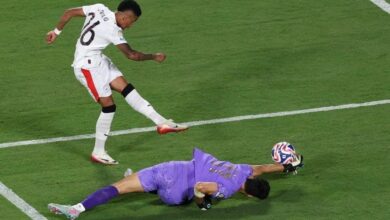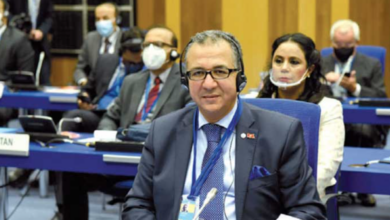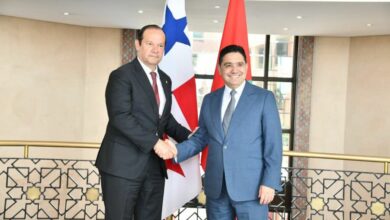El Pais’ Many Fallacies About Sahara

By Lahcen Haddad*
The El Pais editorial of December 12, 2020, called “The Forgotten Sahara: The UN Should Reactivate its Diplomatic Effort in the African Territory”, is not only full of fallacies but of major historical omissions, which makes it too close to the “independentist” narrative despite its forced tone of neutrality.
El Pais claims that the US recognition of Moroccan sovereignty over Western Sahara is against international legality, forgetting that the basis of legality when it comes to sovereignty is generally based on the recognition by individual countries. If countries had validated the Madrid Accords of 1975 and recognized the sovereignty of Morocco over the territory, we would not be discussing this problem 40 years later.
The fact that no US president before had ever done what Donald Trump did does not mean that it is not legally and politically feasible. In fact, George Bush and Barak Obama and hundreds of US members of congress considered the autonomy plan proposed by Morocco in 2007 to be “credible and realistic”; in addition, Congress passed a bill in 2013 that was ratified by President Obama in 2014 that allows US AID to be used for development initiatives in Western Sahara for the first time, thereby tacitly recognizing the possible sovereignty of Morocco over the territory. Donald Trump’s decision was the culmination a pattern that had started with Bill Clinton more than twenty years ago.
What El Pais calls the “monetization” of the Western Sahara issue by the White House in its effort to normalize relations between Arab countries and Israel is, therefore, at best a fallacy. What EL Pais did not understand is that Morocco could play a role in the Middle Eastern conflict, given the recent development, and given the good relations it has, and will have, with both Israelis and Palestinians. But for Morocco to play that role, which could be a positive one as we have seen in Libya, the Sahel and West Africa, it cannot stay forever pulled back by an artificial conflict that is a mere remnant of the cold war and of Algeria’s outdated hegemonic desires.
What El Pais forgets or does not care about is that Western Sahara is considered by all Moroccans to be an existential question of national and historical ramifications. At a moment when the Spanish people are highly worried about their unity as a nation in the midst of mounting regional nationalisms, you would expect the first Spanish newspaper to be sensitive to the Moroccan people’s aspirations to territorial integrity and unity. Yet the double standard of our friends at El Pais is obvious for anyone who cares to read between the lines.
Moreover, instead of applauding Morocco for its non-combatant military intervention to reestablish international legality and clear the Guerguerat pass and ensure the free flow of goods and people between Europe and Africa, and thereby ensure the free supply of food to West Africa, it describes it as a cause of “the worst crisis in three decades.” Blinded by the Polisario narrative, it seems to read only the fake news coming from Tindouf and Algiers about imaginary battles and exchange of fire.
No word about the fact that Morocco spends billions developing the region, or that it has lifted the territory from being the poorest to one of the most developed regions of Morocco; not a sentence on the fact that Morocco spends ten times more that it extracts in phosphates and fisheries; not even a line on the plight of thousands of Sahrawis sequestrated and warehoused in Tindouf Camps with no rights, no voice and no freedom of movement as stipulated in the Geneva Convention.
And of course, nothing about the fact that Morocco liberated the Sahara from Spanish colonialism by virtue of a ruling of the International Court of Justice (ICJ) in 1975 which stated that there were allegiance ties between Moroccan Kings and the Sahrawi tribes for centuries.
Nothing about the fact that the Sahrawi Jemaa (the very entity put together by Spain before leaving the territory) was consulted, as envisioned in the ICJ ruling. That is the other international legality EL Pais does not want to look at. Why? I guess because it has been reveling so long in the phantasmagoric narrative of Algeria and the Polisario.
And for El Pais, the fact that seventeen countries have opened consulates in Western Sahara, as a sign of recognition of Moroccan sovereignty, does not have anything to do with international law. El Pais seems to be rewriting the rules of what international legality means.
Surprising for a respected newspaper that I pride myself on reading every day.
*Lahcen Haddad is a Strategic Studies Expert





